Cibinetide
- CAS NO.:1208243-50-8
- Empirical Formula: C51H84N16O21
- Molecular Weight: 1257.31
- MDL number: MFCD30534405
- EINECS: 200-001-8
- Update Date: 2024-12-12 15:32:36
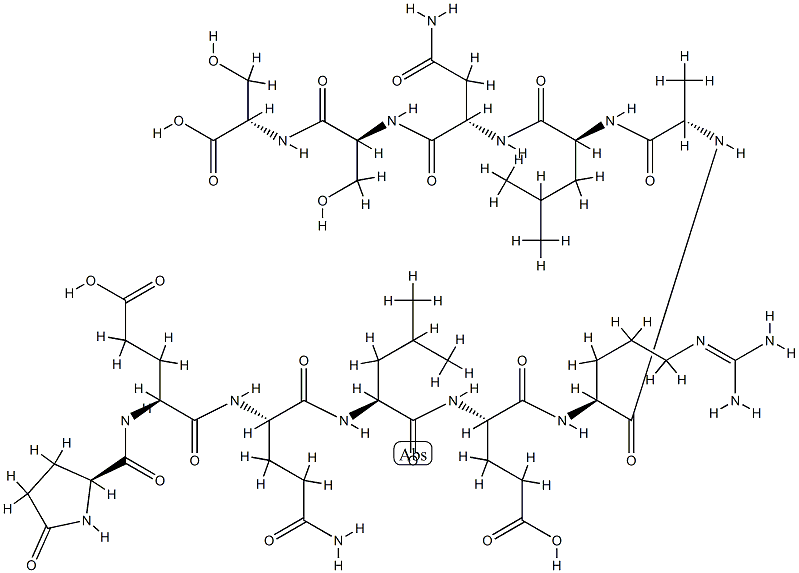
What is Cibinetide?
Description
Cibinetide, also known as ARA-290, is a synthetic 11-mer peptide that binds the tissue-protective receptor. ARA290 inhibits high glucose-induced apoptosis of NRK-52E cells. Cibinetide Protects Isolated Human Islets in a Stressful Environment and Improves Engraftment in the Perspective of Intra Portal Islet Transplantation. Cibinetide Improves Corneal Nerve Fiber Abundance in Patients With Sarcoidosis-Associated Small Nerve Fiber Loss and Neuropathic Pain. ARA 290 relieves pathophysiological pain by targeting TRPV1 channel: Integration between immune system and nociception.
Benefits
Cibinetide, also known as ARA 290 and helix B surface peptide (HBSP), is a synthetic 11 amino acid peptide derived from the structure of the B helix of erythropoietin(EPO), with marked anti-apoptotic, anti-inflammatory and anti-permeability effects, recapitulating the effects of the endogenous EPO. Unlike EPO, is not haematopoietic and, thus, is free of the possible side effects of EPO, which can be life threatening. In an experimental model of DR, cibinetide administered systemically inhibited vascular leakage and edema and protected against retinal blood vessels and neuroglial degeneration. Additionally, cibinetide improved metabolic control in both preclinical and clinical studies[7].
Biological Activity
Cibinetide (ARA 290) is an engineered peptide that mimics the 3 dimensional structure of the helix B surface domain of erythropoietin (EPO). It is designed to bind selectively to the non-hematopoietic EPO receptor (sometimes referred to as the innate repair receptor or IRR), that is believed to be a heterodimer of EPOR and the cytokine family beta common receptor (βCR, CD131). Non-hematopoietic EPO ligands have potential tissue protective and anti-inflammatory actions. The IRR is suggested to be a point of integration between the immune system and pain signalling (via nociception) .
in vitro
Cibinetide (ARA290) enhances the proliferation, migration, and resistance to H2O2-induced apoptosis of endothelial colony-forming cells (ECFCs)[1]. Cibinetide (ARA290) is an EPO-analog peptide without hematopoietic side-effects but may have neurotrophic and antidepressant effects.
in vivo
After ECFC transplantation to mice with CLI, a single Cibinetide (ARA290) injection enhances the ischemic/non-ischemic ratio of hindlimb blood flow and capillary density after 28 days and the homing of radiolabeled transplanted cells to the ischemic leg 4?h after transplantation. Cibinetide (ARA290; 30 μg/kg, s.c.) prevents progressive worsening of glucose control without affecting the body weight of rats. Cibinetide significantly decreases glucose AUCs in IPGTT in GK rats. Low-dosage Cibinetide (35 μg/kg, i.p.) treatment slightly attenuates the EAE severity in rats. Cibinetide-treating group (70 μg/kg, i.p.) significantly delays the onset, decreases the neurologic severity, and shortens the duration of EAE in a dose-dependent way.
References
[1] YAOMING. Improvement of Islet Allograft Function Using Cibinetide, an Innate Repair Receptor Ligand.[J]. Transplantation, 2020. DOI:10.1097/TP.0000000000003284.
[2] AWIDAZAMZAM. The Non-Erythropoietic EPO Analogue Cibinetide Inhibits Osteoclastogenesis In Vitro and Increases Bone Mineral Density in Mice.[J]. International Journal of Molecular Sciences, 2021. DOI:10.3390/ijms23010055.
[3] LOISNOEMI. A Phase 2 Clinical Trial on the Use of Cibinetide for the Treatment of Diabetic Macular Edema.[J]. Journal of Clinical Medicine, 2020. DOI:10.3390/jcm9072225.
[4] NAIRZMANFRED. Cibinetide dampens innate immune cell functions thus ameliorating the course of experimental colitis.[J]. Scientific Reports, 2017. DOI:10.1038/s41598-017-13046-3.
[5] BRINESMICHAEL CeramiAnthony. The receptor that tames the innate immune response.[J]. Molecular Medicine, 2012. DOI:10.2119/molmed.2011.00414.
[6] BRINESMICHAEL CeramiAnthony. Erythropoietin and engineered innate repair activators.[J]. Methods in molecular biology, 2013. DOI:10.1007/978-1-62703-308-4_1.
[7] Noemi Lois. “A Phase 2 Clinical Trial on the Use of Cibinetide for the Treatment of Diabetic Macular Edema.” Journal of Clinical Medicine (2020).
Properties of Cibinetide
| Density | 1.56±0.1 g/cm3(Predicted) |
| pka | 2.90±0.10(Predicted) |
| form | Solid |
| color | White to off-white |
Safety information for Cibinetide
Computed Descriptors for Cibinetide
| InChIKey | WZTIQQBMSJTRBR-WYKNNRPVSA-N |
New Products
Tert-butyl bis(2-chloroethyl)carbamate (S)-3-Aminobutanenitrile hydrochloride N-Boc-D-alaninol N-BOC-D/L-ALANINOL N-octanoyl benzotriazole 4-Hydrazinobenzoic acid 3,4-Dibenzyloxybenzaldehyde Electrolytic Iron Powder 1,1’-CARBONYLDIIMIDAZOLE R-2-BENZYLOXY PROPIONIC ACID 4-HYDROXY BENZYL ALCOHOL 1,1’-CARBONYLDI (1,2-4 TRIAZOLE) S-2-CHLORO PROPIONIC ACID (2-Hydroxyphenyl)acetonitrile 4-Bromopyrazole 5-BROMO-2CYANO PYRIDINE 5,6-Dimethoxyindanone 5-broMo-2-chloro-N-cyclopentylpyriMidin-4-aMine 3-(Hydroxymethyl)benzoate N-Boc-2-chloroethylamine 1-Bromo-2-methoxy-3-nitrobenzene N-Methyl-3-cyclopenten-1-amine 2-Bromo-3-hydroxybenzaldehyde 1H-indazole-5-carboxamideRelated products of tetrahydrofuran

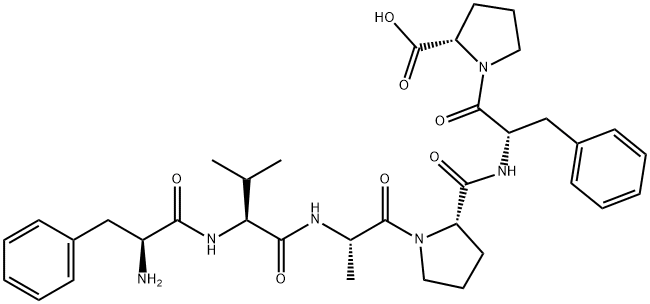

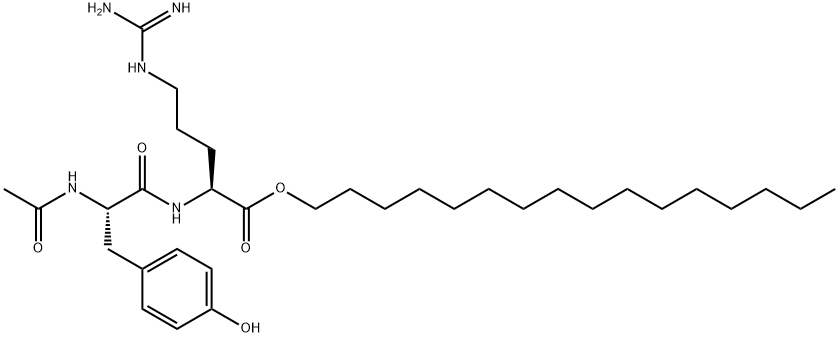

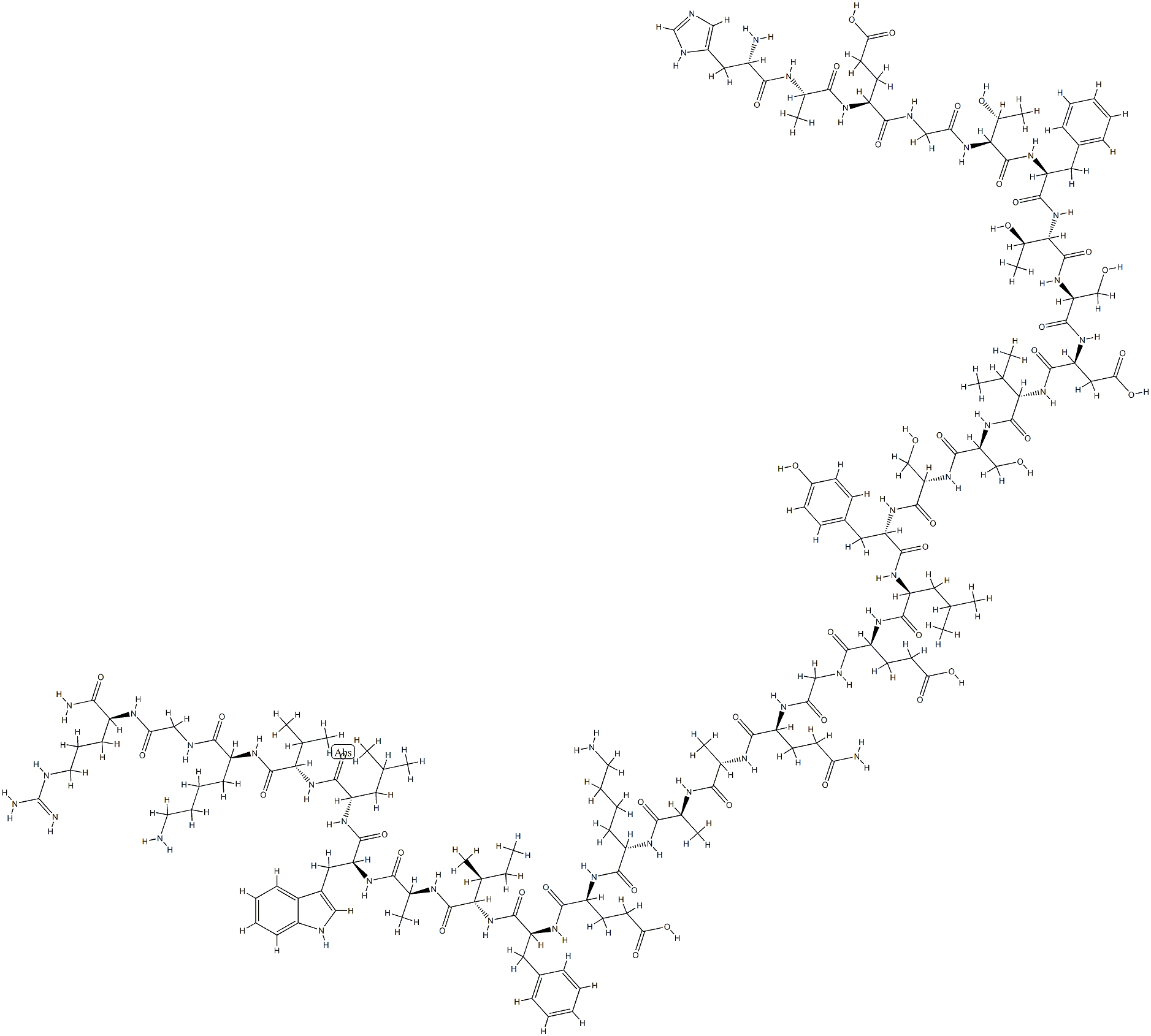
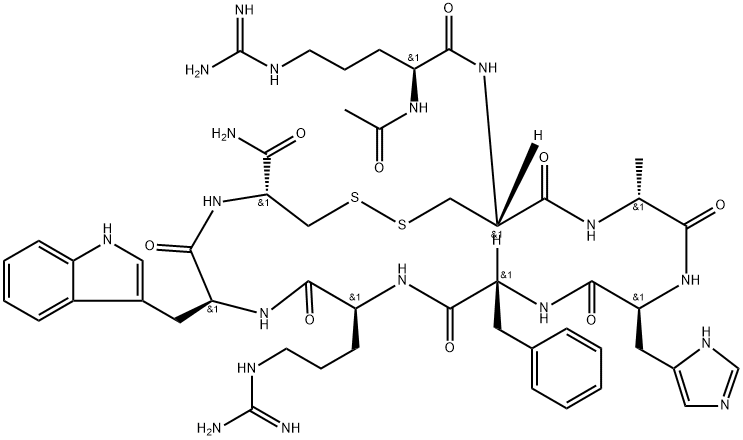

You may like
-
 7441-43-2 98%View Details
7441-43-2 98%View Details
7441-43-2 -
 1260741-78-3 6-Bromo-3-iodo-1-methyl-1H-indazole 98%View Details
1260741-78-3 6-Bromo-3-iodo-1-methyl-1H-indazole 98%View Details
1260741-78-3 -
 (3-Benzyloxypropyl)triphenyl phosphonium 98%View Details
(3-Benzyloxypropyl)triphenyl phosphonium 98%View Details
54314-85-1 -
 4-bromo-3,5-dimethylbenzenesulfonyl chloride 1581266-79-6 98%View Details
4-bromo-3,5-dimethylbenzenesulfonyl chloride 1581266-79-6 98%View Details
1581266-79-6 -
 2490430-37-8 98%View Details
2490430-37-8 98%View Details
2490430-37-8 -
 N-(5-Amino-2-methylphenyl)acetamide 5434-30-0 98%View Details
N-(5-Amino-2-methylphenyl)acetamide 5434-30-0 98%View Details
5434-30-0 -
 124371-59-1 98%View Details
124371-59-1 98%View Details
124371-59-1 -
 53857-52-2 98%View Details
53857-52-2 98%View Details
53857-52-2